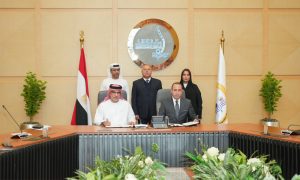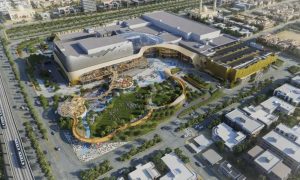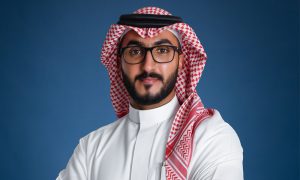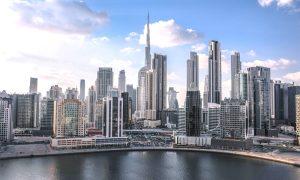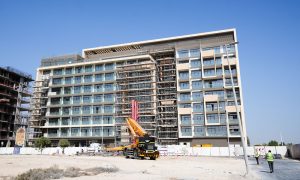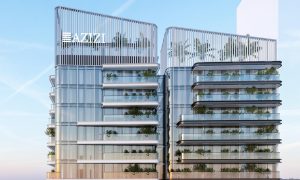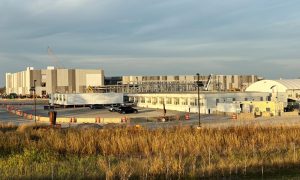Tough times ahead: Gulf construction outlook for 2016
Low oil prices and challenging economic conditions to weigh heavily on the industry
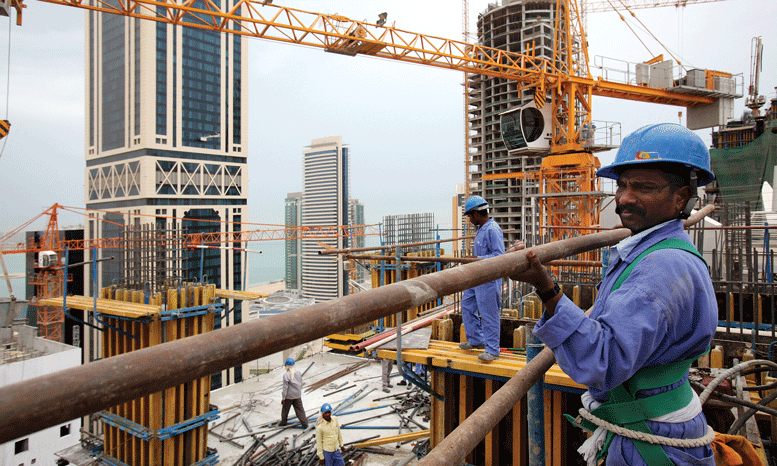
Last year was a challenging one by all accounts, globally and within the GCC. Perhaps the most significant factor driving uncertainty in the Gulf was continued low oil prices, fast being established as a new norm rather than a temporary setback.
The decline in oil revenues, combined with the geopolitical turmoil in much of the Middle East and the expected lifting of Iranian sanctions, have led key figures in the construction industry and its many verticals to adopt a wait-and-see approach to what the future holds in store. It is thus unsurprising that a recent survey found a dramatic decline in optimism for 2016 in the GCC construction sector, compared to results from over a year ago.
Law firm Pinsent Masons’ annual GCC Construction Survey, which was presented to companies involved in projects with a value of over AED100 million ($27.2m), shows that just 32% of respondents are optimistic about 2016. This compares to 77% stating that they were optimistic about 2015 when asked the same question a mere 12 months earlier.
The shift in sentiment is consistent with less positive responses from the industry to questions about order books, contract conditions, payment periods and disputes. Out of those surveyed, 16% said that their 2016 order books had declined by over 10%, which compares to just 4% a year earlier.
A significant majority of respondents (95%) also said contract conditions had become less favourable during 2015, a 14% increase from a year earlier. Moreover, 95% of participants said payment periods were longer this year, and 60% said they were involved in more disputes during 2015 than had been expected.
The survey’s results are indicative of the increasingly tough economic conditions as the construction industry – like many others – comes to terms with the impact of ongoing low oil prices, turmoil in the wider MENA region and general concern about emerging markets from many global investors, Pinsent Masons said.
Country-wise, the UAE was considered the strongest market opportunity in 2016. Optimism surrounding its larger neighbour Saudi Arabia saw a significant decline, with just 12% of respondents saying Saudi Arabia would provide the strongest growth opportunity in 2016. This represents a substantial drop from a year earlier, when 40% of respondents believed the kingdom would be the strongest market in 2015.
“This is the sharpest annual decline in optimism our survey has seen, and there is no doubt that economic and geopolitical concerns are playing heavily on people’s minds,” says Sachin Kerur, head of Middle East region at Pinsent Masons. However, there could be “a swift return to positivity” once these issues are resolved.
“Nowhere in the region is falling optimism as pronounced as it is in Saudi Arabia,” Kerur says, noting that this is to be expected, given the central role oil maintains in its economy. “Despite this, there is a general sense amongst the industry that if the current financial squeeze can deliver greater diversification of the economy, Saudi Arabia will remain a highly attractive market.”
The kingdom does seem to be on the right track, he says, with positive diversification measures under discussion, which if implemented would lead to greater private participation in the GCC’s largest economy.
Meanwhile, neighbouring Qatar is benefiting from a surge in enthusiasm as the 2022 World Cup edges closer, even amidst the scrutiny it has come under for working conditions for migrant labour and corruption allegations involving top FIFA officials. A growing portion of the industry now views Qatar as offering the strongest regional opportunity. Positivity surrounding the GCC state more than doubled, with about a third of respondents (33%) considering it to be the strongest market opportunity, as opposed to just 14% in the previous year’s survey.
Infrastructure investment
The decline in oil revenues around the region is likely to lead to cuts in infrastructure spending brought about by fiscal restructuring amongst the GCC’s hydrocarbon-based economies, according to real estate advisory JLL. This is already evident in the form of budget cuts by GCC states, including the UAE.
While many of the projects already announced are likely to proceed, they may be scaled back or rescheduled over an extended period, with future projects curtailed, JLL says. On the other side of the coin, GCC governments are also looking to raise additional revenue through sales tax, land or housing tax and the reduction or removal of subsidies – developments which also have implications for various real estate stakeholders.
“While we remain positive on the long-term outlook for real estate markets across the region, there is little doubt that the rebalancing of the fiscal position will result in headwinds and challenges over the next 12 months,” says Craig Plumb, head of research at JLL MENA.
“While governments continue to spend on development and infrastructure projects, the level of this spending will inevitably be curtailed over the medium term as spending needs are realigned with the reality of lower oil revenues.”
Kerur also acknowledges that there might be a slowdown, but reiterates that infrastructure spending is nevertheless likely to continue. “First of all, there’s a big infrastructure deficit in this region, which needs to be bridged. Secondly, infrastructure is a very important catalyst and driver for an economy, so when there are difficult times, infrastructure construction is an important element of the economy to keep it ticking over, so I think the governments around the region would be keen for both reasons to keep infrastructure moving along.”
If governments don’t have the money required to do so, they will probably rely on other forms of financing to ensure that infrastructure continues, he adds. “Otherwise, it can have a very negative impact on the economy and they will slip further behind in their ability to diversify their economies.”
Given the fiscal environment GCC governments are currently operating under, it perhaps comes as a surprise that two thirds (67%) of respondents surveyed by Pinsent Masons said they are not currently involved in, or anticipating to be involved in, PPP (public-private partnership) projects over the next 12 months.
“These arrangements could offer a favourable solution for numerous major infrastructure and construction developments, and there have been legislative changes made to make them more accessible and attractive,” Kerur points out. “It may well be that the private sector still believes more reform is needed before PPPs become mainstream.”
INDUSTRY VIEWS
Martin Bassett, Director – Transport & Infrastructure, WSP | Parsons Brinckerhoff
The Middle East market and the wider global economy face challenges just now; the regional engineering and construction industry is heavily dependent on government expenditure sourced from oil income.
That said, there are also major global events planned for this region in several years which will continue to drive development in all areas. Irrespective of the challenges faced, our focus remains on adding value for our clients, retaining and attracting the best people and driving the themes of health and safety, quality, sustainability and technology through everything we do. We are always thinking about how we can meet and exceed our clients’ expectations – that is our fundamental purpose.
Wael Allan, Middle East CEO at Arcadis
2015 was a tough year in general for the construction industry with bright spots in parts of the region. It shaped us well and made us sharpen our pencils, focusing on the things that matter. Overall, expectations were met, but not without trying very hard.
I expect consultants and contractors will be better placed in 2016, as they have had time to adjust and prepare in 2015. We will enter 2016 cautiously optimistic. We make our fortunes by careful planning and selection of opportunities. 2015 has calibrated our expectations, and we are ready with agility and positive energy.
Mark Streetz, senior vice president and managing principal Dubai, HOK
2015 has been good. I think with the oil prices, everything is becoming a little bit soft. But hopefully, things will move forward.
There’s a lot of master planning projects coming through, so a lot of people are testing the projects, and they’re willing to spend the money for master planning to take a look at the economy and what we can do for them. HOK is very well-rounded from a design standpoint, and master planning is a very big part of our business.
Brian Fisher, Middle East head of project management, Faithful + Gould
I think 2016 is actually going to be tougher [than 2015], so what we’ve got to do is just consolidate where there are key clients, continue to deliver strong teams for our clients and make sure that we deliver our projects to their satisfaction.
We understand what our clients require. We normally embed ourselves in their organisation, so we know what motivates them to have a successful project. We have a really good team of senior management, and it’s really just us understanding how to deliver and give the clients what they need. And we represent them to make sure that we can deliver the projects for them in accordance with their business plan.

